Devouring the Oscars: Best Animated Short Film
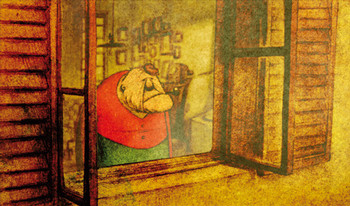 I’ll start with an admonition: You have no reason not to have a horse in the short-film categories for the Oscars. These should be your favorite races, because they require relatively small investments of time. If you see and hate The Reader, you’ve lost 124 minutes of your life. If you see and hate Lavatory – Lovestory, you’re out 10 minutes. And the chances of you hating Lavatory – Lovestory are much smaller. Alas, each has about the same chance of winning the top prize in its category.
I’ll start with an admonition: You have no reason not to have a horse in the short-film categories for the Oscars. These should be your favorite races, because they require relatively small investments of time. If you see and hate The Reader, you’ve lost 124 minutes of your life. If you see and hate Lavatory – Lovestory, you’re out 10 minutes. And the chances of you hating Lavatory – Lovestory are much smaller. Alas, each has about the same chance of winning the top prize in its category.

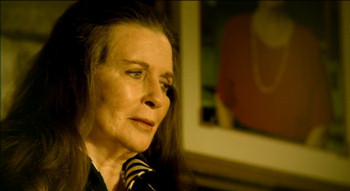 Two case studies: Sometimes and somehow, the music video can do things (beyond the song) that seem impossible in any other format, regardless if the aims are serious or silly.
Two case studies: Sometimes and somehow, the music video can do things (beyond the song) that seem impossible in any other format, regardless if the aims are serious or silly.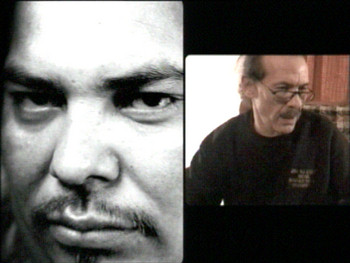 The guy who dominates Stefan Nadelman’s documentary short Terminal Bar could be related to Robert Crumb, both in his physical features and his matter-of-fact way. He talks about everything from death by alcohol to bathroom blowjobs to the “destituted” people who frequented the titular establishment where he tended bar for a decade. And like the famous cartoonist Crumb, he seems perpetually amused, and it looks suspiciously like a defense mechanism.
The guy who dominates Stefan Nadelman’s documentary short Terminal Bar could be related to Robert Crumb, both in his physical features and his matter-of-fact way. He talks about everything from death by alcohol to bathroom blowjobs to the “destituted” people who frequented the titular establishment where he tended bar for a decade. And like the famous cartoonist Crumb, he seems perpetually amused, and it looks suspiciously like a defense mechanism.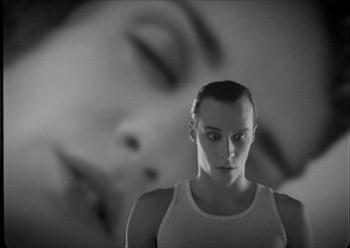 An object within an object of the same type – the novel within a novel, the film within a film – is rarely considered out of its context. Its meanings, and its narrative or thematic roles, are derived from its conversation with the larger work. But if the object is nearly whole – that is, if it’s not just a fragment, if we have a reasonably full sense of its shape, structure, and content – looking at it in isolation can bear fruit and is an act of respect.
An object within an object of the same type – the novel within a novel, the film within a film – is rarely considered out of its context. Its meanings, and its narrative or thematic roles, are derived from its conversation with the larger work. But if the object is nearly whole – that is, if it’s not just a fragment, if we have a reasonably full sense of its shape, structure, and content – looking at it in isolation can bear fruit and is an act of respect. My version of Robert Zemeckis’ Contact uses the same source material but starts at the 33-minute, 25-second mark and ends at one hour, 26 minutes, and five seconds. It’s a marvel of economy. Let me explain myself.
My version of Robert Zemeckis’ Contact uses the same source material but starts at the 33-minute, 25-second mark and ends at one hour, 26 minutes, and five seconds. It’s a marvel of economy. Let me explain myself.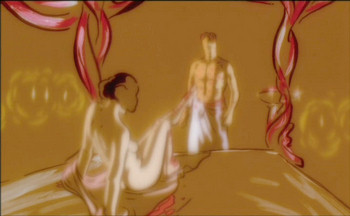 The animated T.R.A.N.S.I.T. is a feature-film plot distilled into 10 minutes, and it shows the ways in which the short film is more forgiving than longer cinematic forms. This movie operates wordlessly almost as a plot outline, and it’s gorgeous to look at and challenging to keep up with. It feels like a small, perfectly cut gem. On reflection, that’s a good analogy, because Piet Kroon’s 1997 short is a beautiful piece of visual craftsmanship that fails as art in any rational analysis.
The animated T.R.A.N.S.I.T. is a feature-film plot distilled into 10 minutes, and it shows the ways in which the short film is more forgiving than longer cinematic forms. This movie operates wordlessly almost as a plot outline, and it’s gorgeous to look at and challenging to keep up with. It feels like a small, perfectly cut gem. On reflection, that’s a good analogy, because Piet Kroon’s 1997 short is a beautiful piece of visual craftsmanship that fails as art in any rational analysis.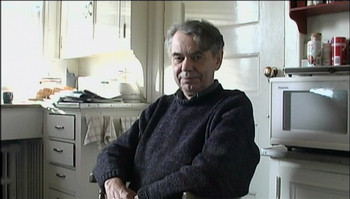 Like most of his movies, David Cronenberg’s
Like most of his movies, David Cronenberg’s 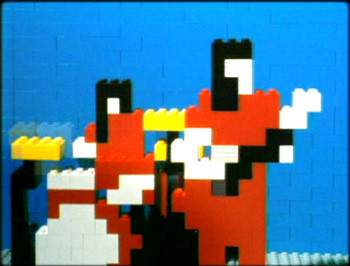 Short movies are at once the most ubiquitous and the most neglected films there are, garnering little critical appraisal as objects themselves even as they’re unavoidable in everyday life.
Short movies are at once the most ubiquitous and the most neglected films there are, garnering little critical appraisal as objects themselves even as they’re unavoidable in everyday life.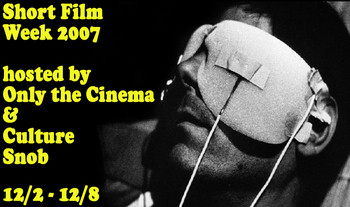 From December 2 through 8, Culture Snob and Ed Howard’s
From December 2 through 8, Culture Snob and Ed Howard’s